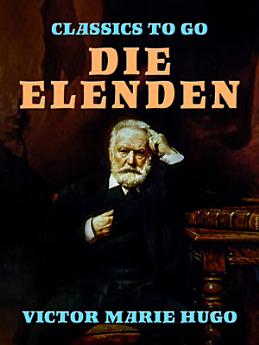Die Elenden
Jan 2021 · Otbebookpublishing
Ebook
1821
Pages
family_home
Eligible
info
reportRatings and reviews aren’t verified Learn More
About this ebook
Die Elenden (französisch: Les Misérables) ist ein Roman von Victor Hugo, den er 1862 im Hauteville House auf Guernsey im Exil beendete. Er ist ein literarisches Werk aus der Epoche der Romantik. Geschildert wird die französische Gesellschaft von der Zeit Napoleons bis zu der des Bürgerkönigs Louis Philippe. Die Handlung erstreckt sich also über den Zeitraum von 17 Jahren zwischen 1815 und 1832. Im Mittelpunkt steht der ehemalige Bagno-Sträfling Jean Valjean. Nach 19 Jahren Haft, die er für den Diebstahl eines Stücks Brot durch Einbruch (vol par effraction) sowie für vier Fluchtversuche erhalten hat, ist er ein von der Gesellschaft gebrandmarkter und innerlich verhärteter Mensch. Durch seine Begegnung mit dem Bischof von Digne, M. Myriel, einem sehr gutherzigen Seelsorger, der ihn Güte erfahren lässt, bekehrt er sich – nach einem kurzzeitigen und rasch bereuten Diebstahl an einem Savoyarden – und wird zu einem moralisch guten Menschen.
About the author
Victor Hugo, born on February 26, 1802, in Besançon, France, stands as a towering figure in French literature and a pivotal voice in the Romantic movement. His life was a tapestry of literary brilliance, political activism, and social reform, making him a fascinating subject for modern readers.Hugo's early years were marked by the tumult of the Napoleonic era, which profoundly influenced his worldview. His father was a general in Napoleon's army, and this exposure to the complexities of power and revolution would later permeate his work. By his twenties, Hugo had already established himself as a leading poet and playwright, but it was his novels that cemented his legacy.A fervent advocate for social justice, Hugo used his literary prowess to champion the downtrodden and criticize the injustices of his time. His works often explored themes of poverty, social inequality, and the human condition, resonating deeply with readers across generations. Hugo's political engagement was not limited to his writing; he was an active participant in the political arena, serving as a deputy in the French National Assembly and later going into exile for his opposition to Napoleon III's regime.Hugo's personal life was as dramatic as his novels. His passionate love affairs, particularly with the actress Juliette Drouet, and his strained relationship with his wife, Adèle Foucher, added layers of intrigue to his public persona. Controversies, such as his outspoken support for the abolition of the death penalty and his criticism of the Catholic Church, further solidified his reputation as a revolutionary thinker.His influence extended beyond literature, inspiring contemporary writers and artists to challenge societal norms and embrace the power of the written word as a tool for change. Victor Hugo's enduring legacy lies not only in his literary masterpieces but also in his unwavering commitment to human rights and social progress, making him a timeless icon for modern readers.
Rate this ebook
Tell us what you think.
Reading information
Smartphones and tablets
Install the Google Play Books app for Android and iPad/iPhone. It syncs automatically with your account and allows you to read online or offline wherever you are.
Laptops and computers
You can listen to audiobooks purchased on Google Play using your computer's web browser.
eReaders and other devices
To read on e-ink devices like Kobo eReaders, you'll need to download a file and transfer it to your device. Follow the detailed Help Center instructions to transfer the files to supported eReaders.








